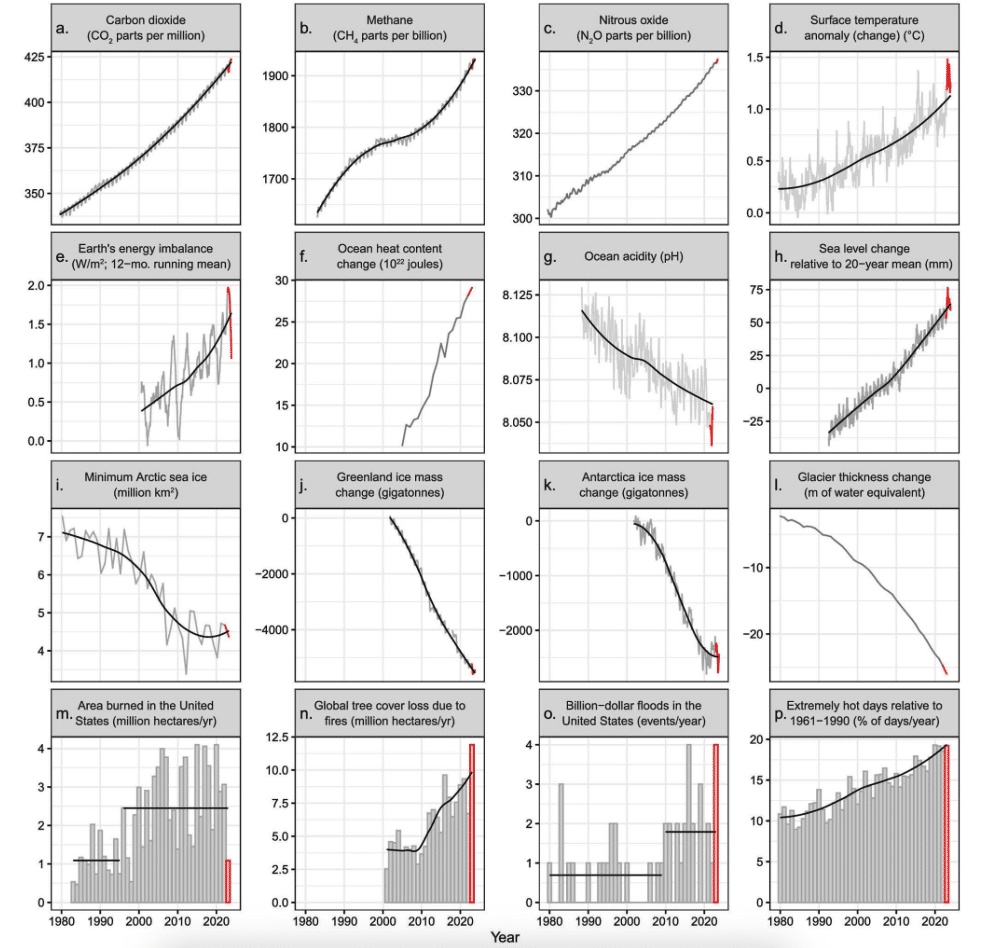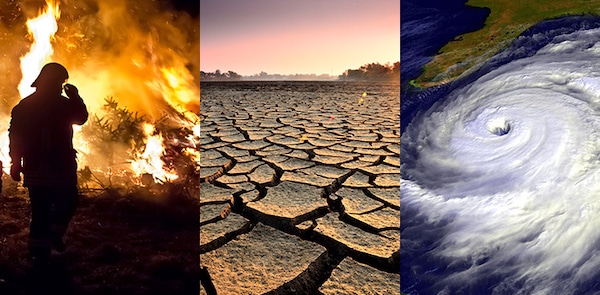This blunt warning opens The 2024 State of the Climate Report published yesterday in the journal BioScience.
We are on the brink of an irreversible climate disaster. This is a global emergency beyond any doubt. Much of the very fabric of life on Earth is imperiled. We are stepping into a critical and unpredictable new phase of the climate crisis.
An international coalition of scientists headed by William Ripple and Christopher Wolf of Oregon State University tracks 35 planetary vital signs. This year, 25 of those indicators are at record extremes. These graphs illustrate some of the climate-related trends since 1980:

Climate related time series, 1980-2024. (Photo: Bioscience, October 8, 2024)
The three hottest days ever came in July 2024, and fossil fuel emissions are at an all-time high. The annual consumption of fossil fuels climbed by 1.5% in 2023, mainly because of big jumps in coal (1.6%) and oil use (2.5%).
The Earth’s average surface temperature is at an all-time high. Ocean acidity and heat content, as well as average global sea level, are at record extremes. Greenland ice mass, Antarctica ice mass and average glacier thickness are at all-time lows.
The report shows that annual tree cover loss globally rose from 22.8 million hectares in 2022 to 28.3 million in 2023. Based on global year-to-date averages, the concentrations of atmospheric carbon dioxide and methane are at all-time highs.
The past year saw multiple climate-related disasters, including a series of heat waves across Asia that killed more than a thousand people and led to temperatures reaching 50°C (122°F) in parts of India. Climate change has already displaced millions of people, with the potential to displace hundreds of millions or even billions.
The report, which is subtitled Perilous times on planet Earth, concludes:
We must urgently reduce ecological overshoot and pursue immediate large-scale climate change mitigation and adaptation to limit near-term damage. Only through decisive action can we safeguard the natural world, avert profound human suffering, and ensure that future generations inherit the livable world they deserve. The future of humanity hangs in the balance.
[This article includes materials provided by Oregon State University.]

